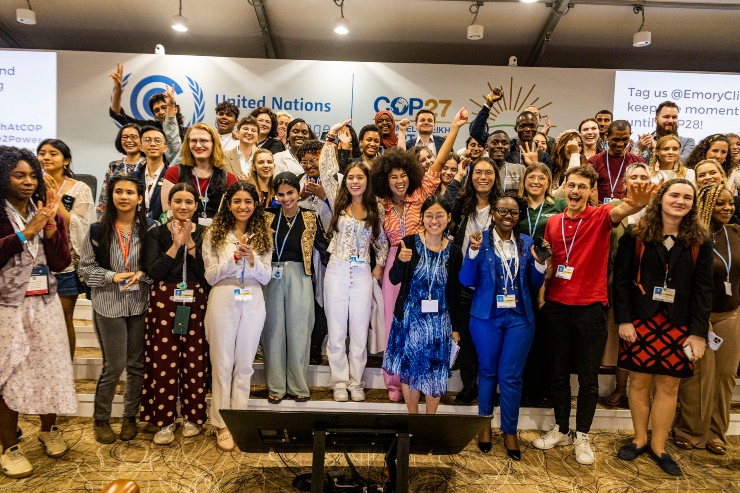What lessons on remote working from the past can help organisations make decisions during the current pandemic? Chidiebere Ogbonnaya and Aaron van Klyton look at work arrangements before, during, and after the 2008 global financial crisis and find that working from home had no impact on employee performance. But workplaces that did not offer remote working at all were more resilient during the crisis. Managers or supervisors directly monitored the quality of employees’ work and gave employees little control over the pace and design of their jobs. This helped their organisations get through the recession more successfully than other workplaces, particularly those that allowed employees to work from home.
Our working lives have changed dramatically since the COVID-19 lockdown began last year. Millions of people have lost their jobs and source of income; others have been furloughed or forced to rely on government assistance. For those lucky enough to keep their jobs, remote working has become the new normal.
As the pandemic continues to cause problems, it’s only a matter of time before we find ourselves in the next global financial crisis. There is already a steady decline in economic activity and rapid changes in organisational spending. Managers and human resources teams are investing less, reducing costs, cutting staff benefits while increasing their workloads, and being extremely cautious about an uncertain future. But remote working continues to dominate headlines, so we ask if it does more harm than good during a recession.
We know that remote working has benefits for most workers. It gives them freedom to work from anywhere, at any time. They are happier, more engaged, and able to strike a balance between their work and family lives. But when it comes to performance, there are some limitations, including poor communication among teams, more distractions, and the difficulty of monitoring employee performance. These issues represent real problems for many businesses, particularly with a global financial crisis on the horizon.
So, what important lessons can we learn from the past? We analysed interview data from 989 British managers about their experiences of the 2008 global financial crisis. The interviews were conducted twice, once before the crisis began, and again three years in the aftermath. In each round, managers described their remote working practices or policies that allowed employees to work from home during normal working hours. We identified four types of workplaces: those that offered remote working before and after the crisis, those that offered it before the crisis only, those that offered it after the crisis only, and those that did not offer remote working at all.
Around 73% of businesses in the information and communications technology sector offered remote working before and after the crisis. Many insurance and financial services companies were also in this group. Around 27% of companies in the real estate sector were in the group that offered remote working only before, but not after the crisis. A higher percentage of wholesale and retail, transportation, accommodation and food services, arts, entertainment, and recreation companies did not offer remote working at all.
In the second round of interviews, managers also described how much the workplace had been damaged by the crisis, and whether their productivity and financial performance levels had worsened compared with other workplaces in the same industry. Next, we analysed survey data from a random selection of five to 20 employees in each workplace where management interviews were conducted. The employees were asked to report on their levels of job security, job satisfaction and trust in management.
The results showed remarkable differences. In workplaces where remote working had been made available before and after the crisis, employees reported greater levels of job security and satisfaction. In these workplaces, employees trusted their managers more and felt they had been sincere in helping workers adapt more easily to change. However, for workplaces that offered remote working only before or after the crisis, the data told a different story; here, employees felt their managers were not trustworthy. In workplaces where remote working was not offered at all, employees felt more insecure and dissatisfied. This makes sense because people are more open to working from home when times are difficult and uncertain.
The subsequent results gave us pause. In the aftermath of the crisis, productivity levels remained the same regardless of whether or not employees worked from home. Also, we found only minimal changes in financial performance between workplaces that offered remote working and those that did not. In short: working from home wasn’t such a big factor for performance during the 2008 global financial crisis. More strikingly, workplaces that did not offer remote working at all were more resilient during the crisis. They had a system where managers or supervisors directly monitored the quality of employees’ work and gave employees little control over the pace and design of their jobs. This helped them get through the recession more successfully than other workplaces, particularly those that allowed employees to work from home.
So, what do these results tell us? In many ways, they challenge recent headlines that remote working is good for business performance. Of course, there are benefits, including job security and managers’ trustworthiness. But if the intention is to increase productivity and boost performance during a recession, then managers must think again — having a work-from-home policy does not guarantee success. In fact, avoiding such policies altogether would ensure a better level of control over workplace activities, although some employees may feel unhappy.
Moreover, if history has taught us anything, it is that managers must err on the side of caution. They must rethink their human resource policies and decide whether employees should continue working from home when the next global financial crisis strikes. We agree that these decisions are not easy to make, and any cutbacks could potentially harm employees’ morale. However, managers must carefully consider the organization’s strengths and weaknesses and come up with the best possible solutions for all concerned.
They must also prepare for a post-pandemic future. This includes regular and honest communications about the problems they face, how they intend to cope, and the role employees should play. Whether good or bad news, employees deserve to understand why any change is warranted and how it will affect their jobs and well-being. If remote working is part of the organisation’s long-term plan, then the right systems must be thoughtful – to keep targets on course; realistic – so things are done well; flexible – should circumstances change; and workable – so everyone’s on the same page.
♣♣♣
Notes:
- This blog post expresses the views of its author(s), and do not necessarily represent those of LSE Business Review or the London School of Economics.
- Featured image by Jason Strull on Unsplash
- When you leave a comment, you’re agreeing to our Comment Policy






An interesting survey but I am unconvinced it is safe to draw many conclusions from what happened over the recession of 2008-2010 and the current pandemic, other than the jury is still out on whether there is a positive association between home-working and productivity. There was no great change in the incidence of home-working during the recession, whereas it shot up during the pandemic and is likely to remain at elevated levels in the recovery. The motivations for the change were very different – the pandemic was a forced change where managers where trying to preserve normal operations and stop the business going under. In that sense it was a great success. I doubt if many managers making these decisions were thinking about productivity at the time, though their experience during the pandemic may influence how far and how quickly they revert to normal workplace working.
Another challenge may be the loss of workplace culture. While team members appreciate and enjoy the flexibility of working remotely, they often comment on a loss of camaraderie with other team members and that they have less visibility into progress towards the company’s overall vision and goals